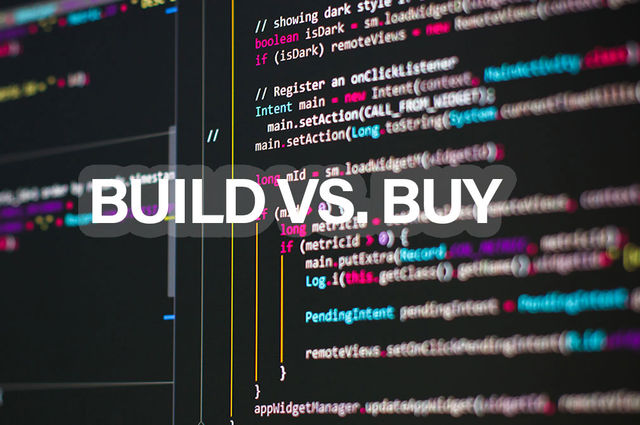Should hoteliers develop in-house or outsource IT applications and solutions?
19 experts shared their view
Some hoteliers (brands & management companies) believe that developing tech solutions in-house is cheaper and provides better customization to the hotelier's concrete needs and control over the ongoing maintenance and performance. Another school of industry-thought believes that hoteliers should focus on their core competencies: providing the best customer experience and best returns possible to ownership and outsource technology applications, products and solutions to specialized vendors.
So the question is, in this era of rapid technological advancements and adoption of next-gen technologies such as AI, IoT, automation, robotics, blockchain, etc., should hoteliers keep technology developments in-house or outsource to specialized, well-funded vendors?
I don't know the perfect answer. I believe, however, that it is somewhere in the middle, between in-house development at one end of the spectrum and the outsource-style choices of either an off-the-shelf product or commissioned, proprietary development at the other end. Certainly, in most cases, viable off-the-shelf technology options are available from at least several vendors and a sufficient, reliable and affordable one can be secured. When this is determined not to be the case, and either use of a software development partner or in-house development appears to be necessary, they need to be approached with recognition of the inherent risks that both involve. Those risks, with which we are all familiar, include a lack of detailed agreement on the characteristics and capabilities of the deliverable, scope creep, and insufficient talent to deliver the software, among others.
Hotel companies have always felt some software to be sufficiently strategic and customized that it could only be developed in-house. But one hotel company's strategic technology is another's commodity, shareable system. The readiness of IHG to outsource it's Central Reservation System development and operation to Amadeus, while Choice Hotels International felt it necessary to develop and operate its Choice EDGE CRS internally, is a case in point.
Each hotel company must decide which systems provide strategic differentiation. They must consider the likelihood of successful internal development (or of successful project completion by a third party software development company) given the cost, risk and possibly-limited term differentiating longevity of that proprietary development effort.
Procurement of new software, whether from in-house resources or from a third party, is only half of the challenge. The other half, I would suggest, is effective ongoing utilization.
Significant efforts are made to achieve successful implementation. Software functions are understood and applied, operational practices are modified to utilize and benefit from those capabilities.
Extensive understanding and use of the software's or system's functions, however, generally soon begins to decline. Our industry's distributed structure with its semi-autonomous operating units - our hotels - and with its high staff turnover, its often informal system/procedure training for new staff (which too often passes on only a subset of what the predecessor knew) and its lack of recurring formal refresher training combine to result in steadily diminishing awareness of the capability (and potential benefits) of the systems we use.
My concern is that this lack of system awareness and competence erodes both the value we receive from our system investments and our ability to fully serve our guests. When, for instance, I talk with Front Desk Clerks and their Managers, I often ask about their familiarity and comfort with the PMS they use.
Time and again those Clerks tell me that they understand about 15-20% of the system's functions, their Managers say 25-35%. They often comment that they see menus items in the PMS displays they think might offer useful functions; sometimes they lament the lack of capabilities which in fact are available to them but about which they are unaware.
My worry is that we understand too little about most of our systems. When the system is supplied by an external vendor, we rely on them to guide us in system use and enhance it to better serve us. We delegate these important responsibilities when in fact we should commit to active, in-house system management.
By that I mean, the value we receive from the technologies we implement is directly related to our awareness of the available functions and selective implementation of them - which ought to include formal training and retaining for all users, ideally including user competence certification with the more complex of those systems.
How we obtain our systems is important. Hotel companies usually have very limited IT staff capable of system development. In some cases, we should or must use external suppliers, in a few cases we can develop systems ourselves. Regardless of which system procurement path is followed, whether we receive full, or only limited and partial value from our system, will be significantly determined by our management of those systems.


